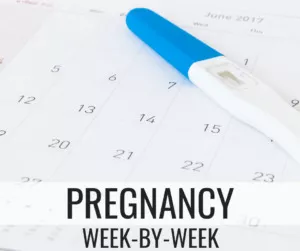
Heartburn during Pregnancy: Causes and Remedies
Heartburn is very common during pregnancy. A pregnant woman may feel chest discomfort and heartburn during all three trimesters. It is a common gastrointestinal symptom in pregnant women, with an incidence of 17 to 45%.
Some research studies have highlighted that the heartburn prevalence can increase from 22-25% in the first trimester to 39-45% in the second trimester. The prevalence of heartburn in the third trimester is 60% to 72%.
What is Heartburn during Pregnancy?
Heartburn is also known as acid reflux and indigestion. During pregnancy, heartburn is caused by hormonal changes and the fetus pressing against the mother’s stomach. Health professionals recommend dietary and lifestyle changes for pregnant women to help ease their indigestion.
Studies show that heartburn is not harmful to the expectant mother. However, the discomfort it causes can lead to loss of sleep. Sometimes, heartburn pain resembles that of HELLP syndrome, a syndrome that affects the liver and blood.
HELLP symptoms include chest pain, abdominal aches, inflammation, and blurry vision. You can manage heartburn during pregnancy with the right lifestyle changes and treatments. Research shows that this condition goes away within a few days after delivery.
Causes of Heartburn During Pregnancy
Hormonal changes are the most common causes of heartburn during pregnancy. The increasing levels of progesterone hormone relax the body’s smooth muscles. However, it causes the stomach to digest food slowly. The upward flow of food then leads to indigestion or heartburn.
Moreover, the growing uterus also puts a lot of pressure on the stomach and other gastrointestinal organs, causing acids to flow in reverse. As a result, the pregnant woman feels discomfort in the digestive tract and heartburn in the esophagus. Indigestion is mild during the first trimester and gets worse during the second and third trimesters.
Pregnant women taking anti-inflammatory and anti-nausea drugs can also experience heartburn during pregnancy. HELLP syndrome, a severe pregnancy complication, also leads to digestive tract problems, including stomach discomfort and heartburn. HELLP is the leading cause of pressure and pain in the upper digestive tract.
The common symptoms of heartburn during pregnancy are burning sensations in the upper chest, throat, and back of the mouth. Other symptoms include bad breath, throat pain, acidic taste, lack of sleep, nausea, and vomiting.
Treatments for Heartburn During Pregnancy
There are several conservative treatment options for heartburn during pregnancy. For instance, Maalox, Rolaids, and Tums are over-the-counter antacids prescribed by health professionals to pregnant women to ease indigestion symptoms.
Medications that contain magnesium or calcium carbonate are also useful for reducing heartburn symptoms. Health professionals suggest that women should avoid taking magnesium during the third trimester because it interferes with contractions during labor.
Although antacids can temporarily ease indigestion symptoms during pregnancy, some medications with high sodium levels can cause fluid accumulation in tissues. Avoid antacids that label “aluminum carbonate” or “aluminum hydroxide” because they can cause constipation.
On the other hand, a pregnant woman can take Zantac to deal with stomach discomfort and heartburn sensations. According to the Food and Drug Administration (FDA), Zantac is a pregnancy category B drug that does not harm a developing fetus.
Homemade remedies are considered more effective for heartburn during pregnancy because they don’t cause adverse effects on the mother and child’s health. Some of the best homemade or natural remedies for indigestion during pregnancy are:
Herbal Tea
Marshmallow, slippery elm, and peppermint have excellent soothing properties and safe during pregnancy. However, we recommend you to check with your doctor before taking these herbal teas. Sipping these teas after lunch and dinner can relieve heartburn.
Apple Cider Vinegar
Although vinegar has acidic properties, apple cider vinegar can neutralize the acid in the stomach. Add one tablespoon of apple cider vinegar to one cup of water. Drink it one or two times a day to relieve stomach discomfort and esophagus burn.
Ginger
Ginger is known for its anti-inflammatory and soothing properties; it can reduce nausea, vomiting, and other gastrointestinal tract problems. Researchers recommend adding natural ginger to your diet during pregnancy. You can also drink ginger tea to soothe your stomach and relieve heartburn.
Probiotics
Gut bacteria maintain your digestive system’s overall health. Taking a probiotic supplement not only increases “good” bacteria in your stomach but also eases symptoms of heartburn. According to the American Pregnancy Association, a pregnant woman can take probiotics to fight stomach-related disorders, including indigestion and acid reflux.
Physical Activity
Physical activity has numerous benefits for pregnant women, such as blood circulation, an increased supply of oxygen to various body organs, healthy digestion, etc. It is recommended to go for a ten-minute walk after dinner to promote digestion.
Final Words
The progesterone hormone relaxes the stomach valves during pregnancy, leading to higher frequencies of digestive discomfort and heartburn. The acid from the stomach passes into the upper digestive tract or esophagus and irritates the lining. Several over-the-counter drugs and homemade remedies can help you ease indigestion symptoms. Consult your health provider before taking any medications or homemade treatments.









